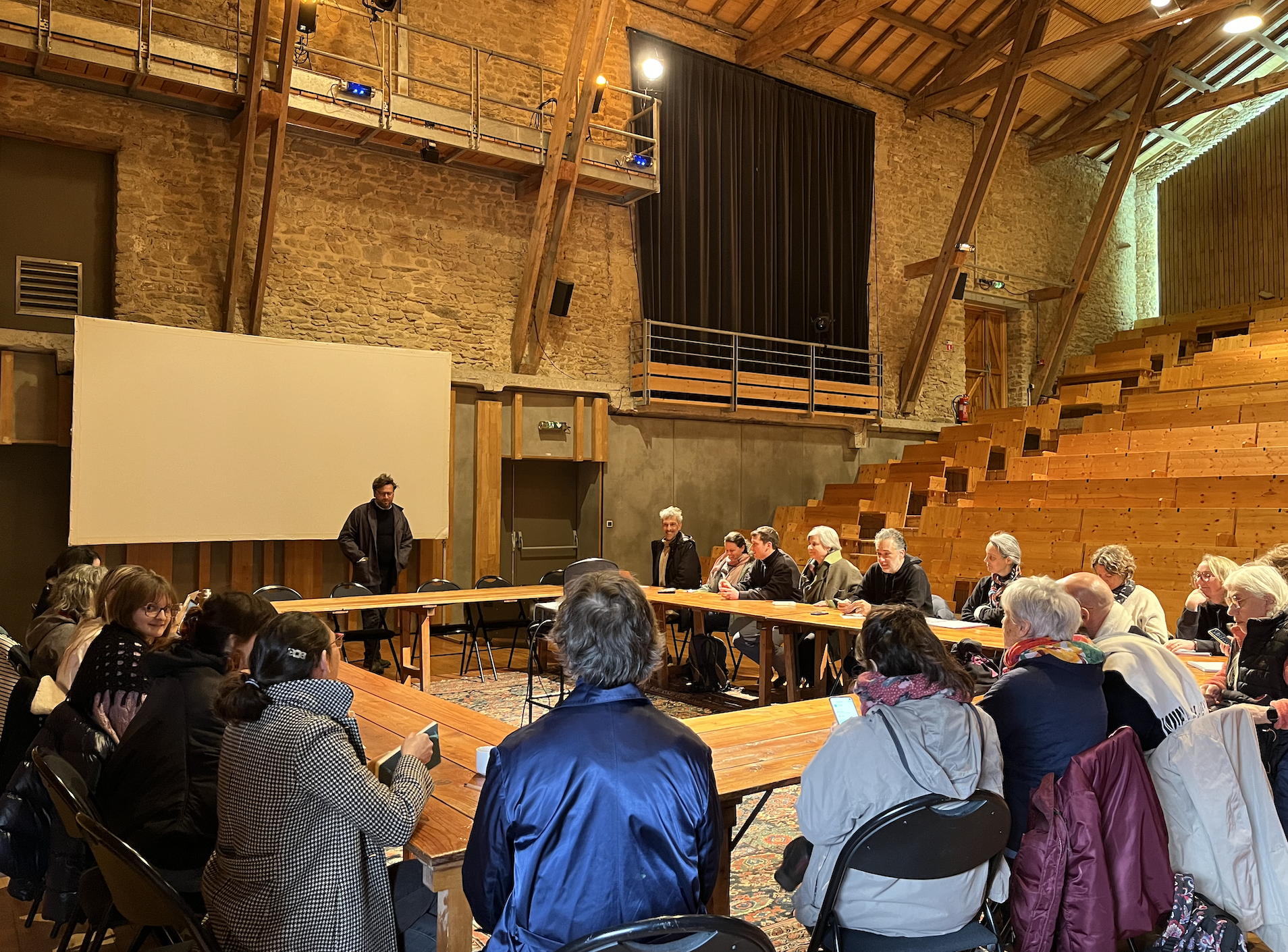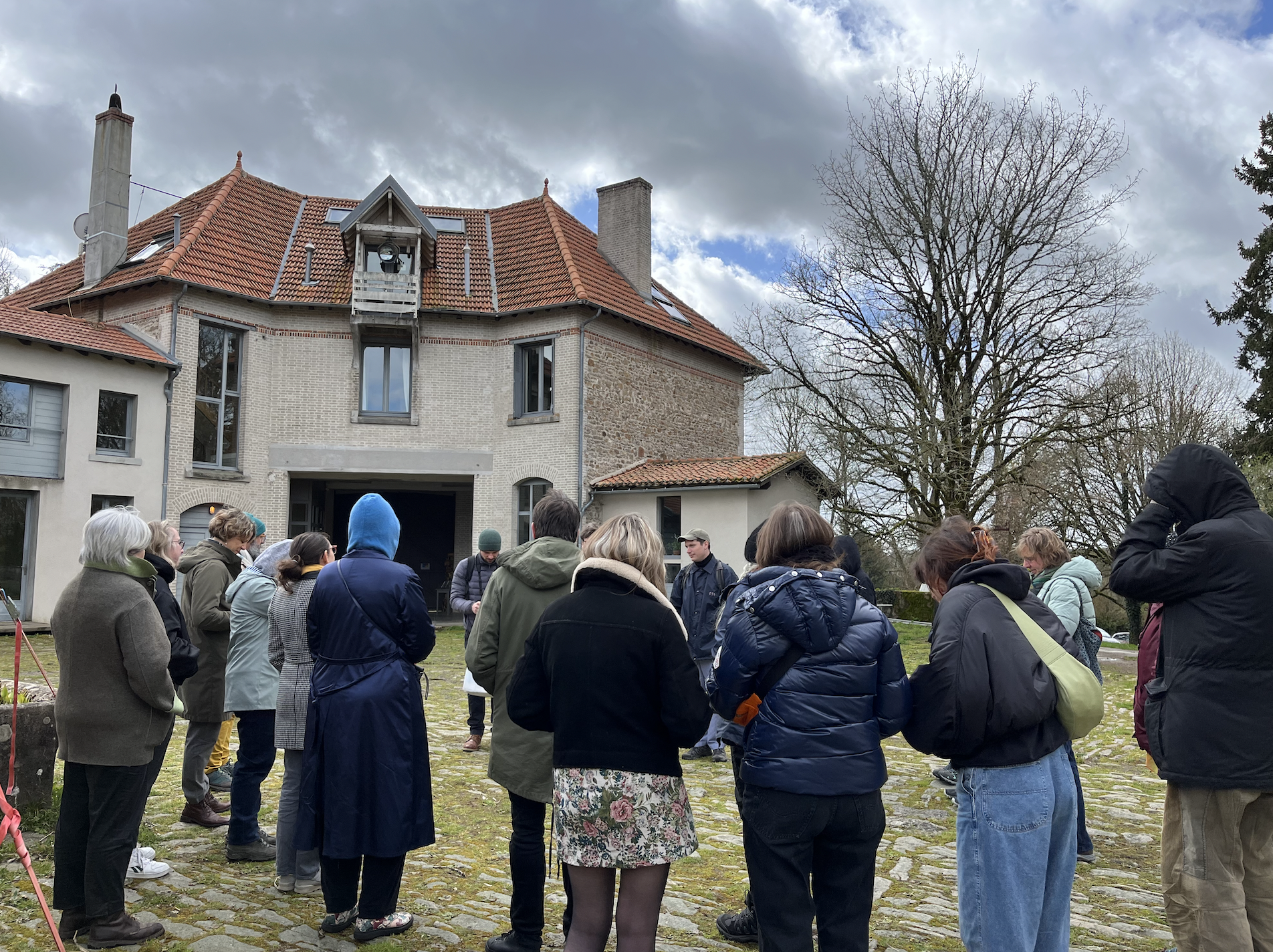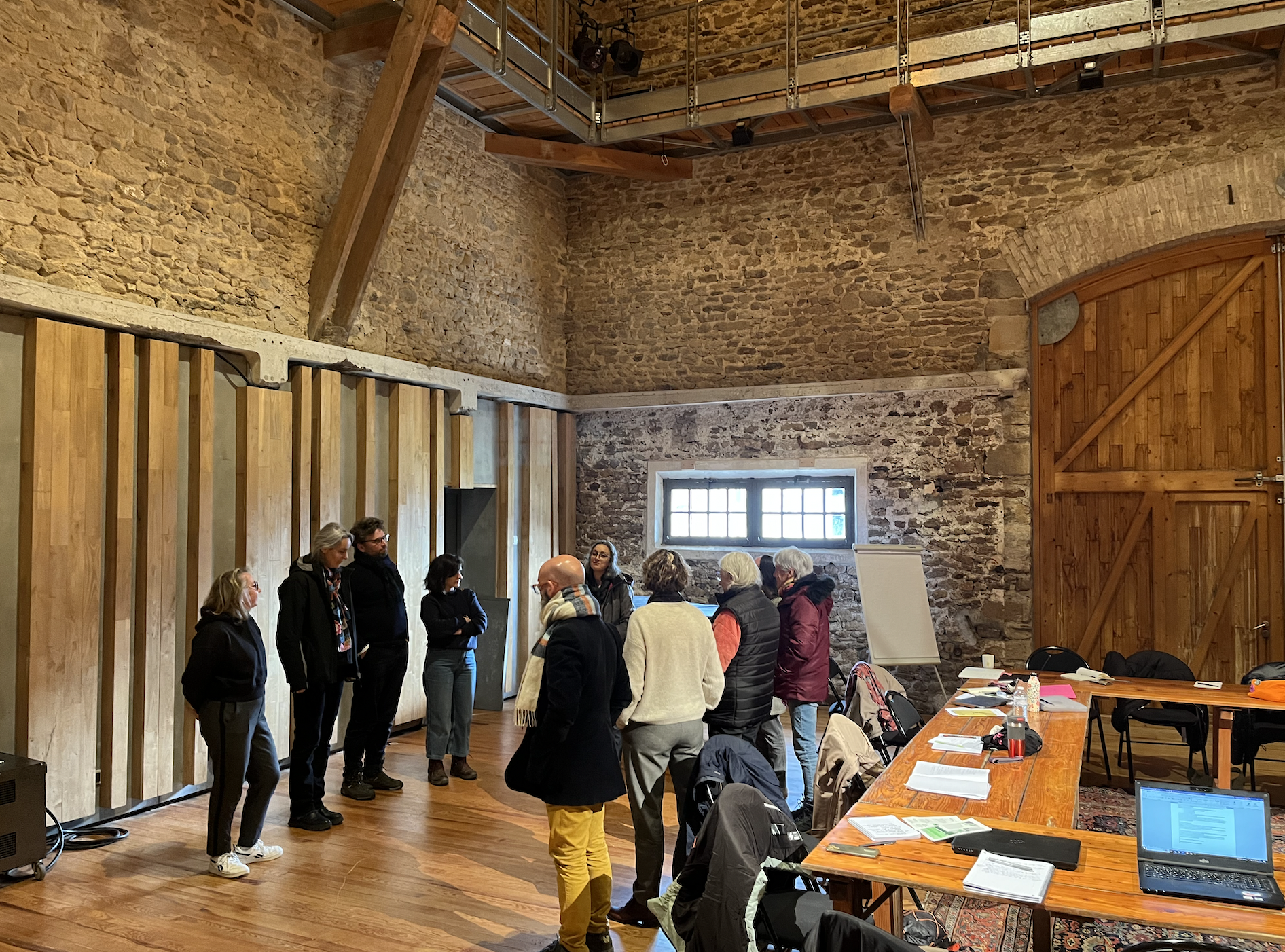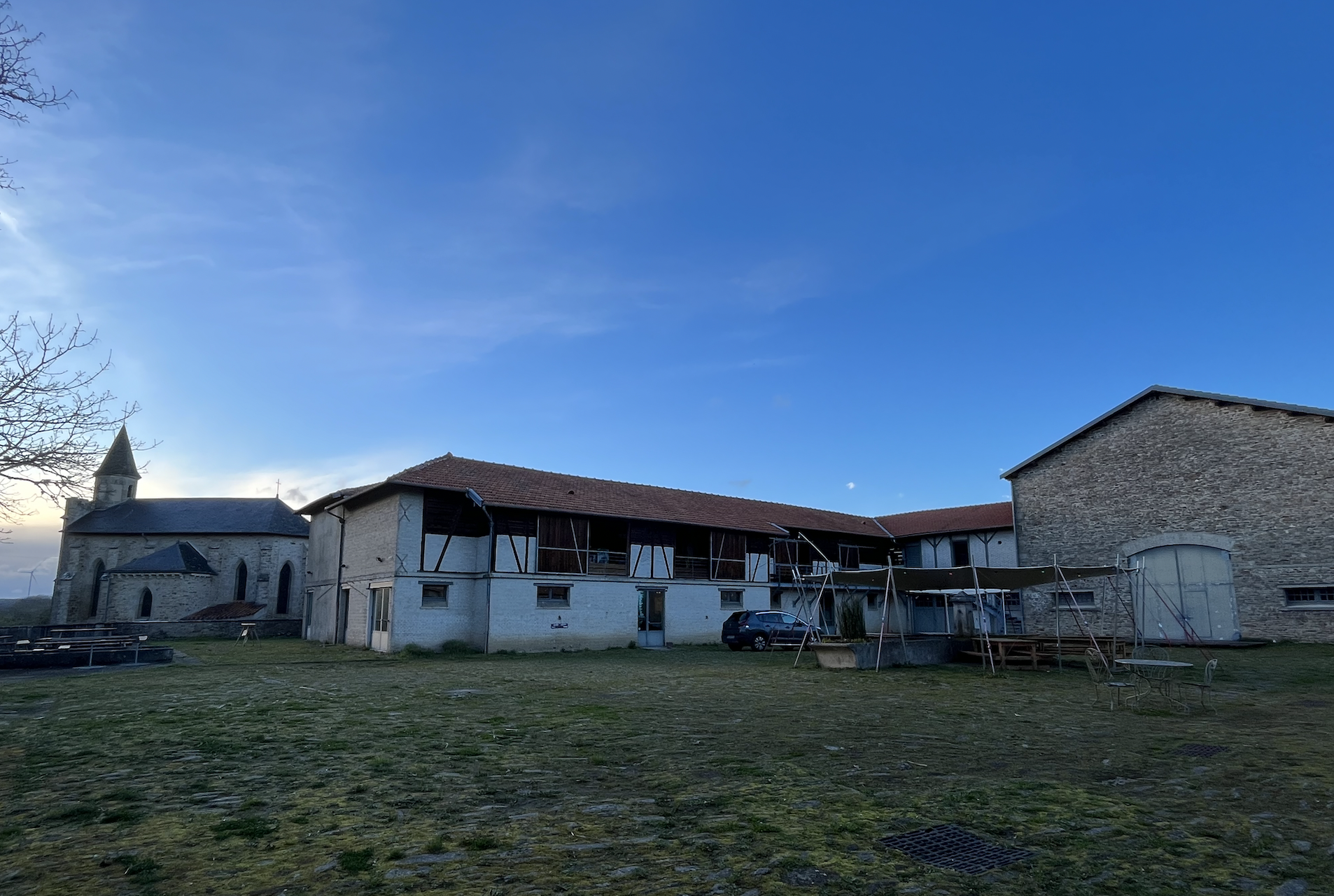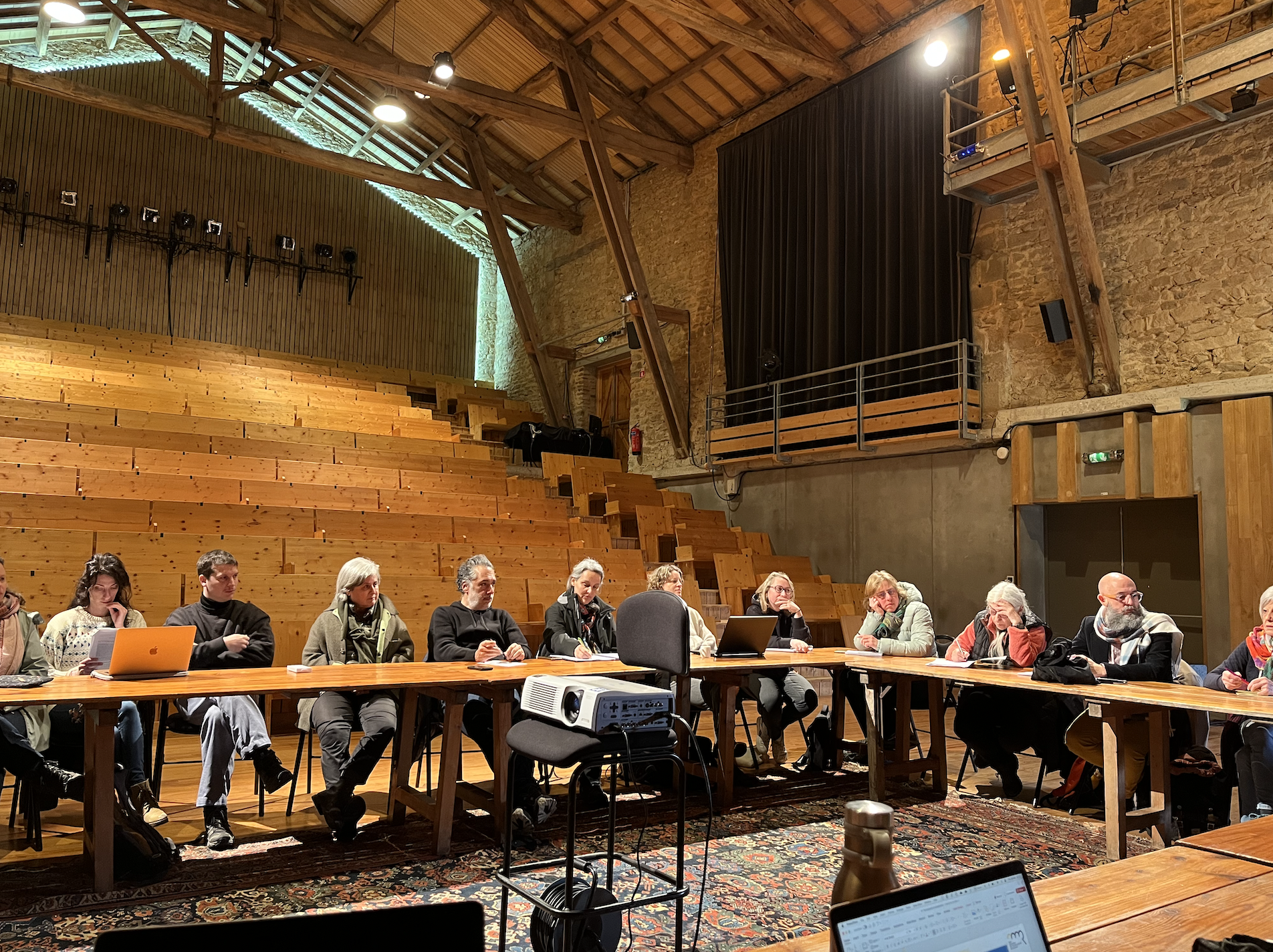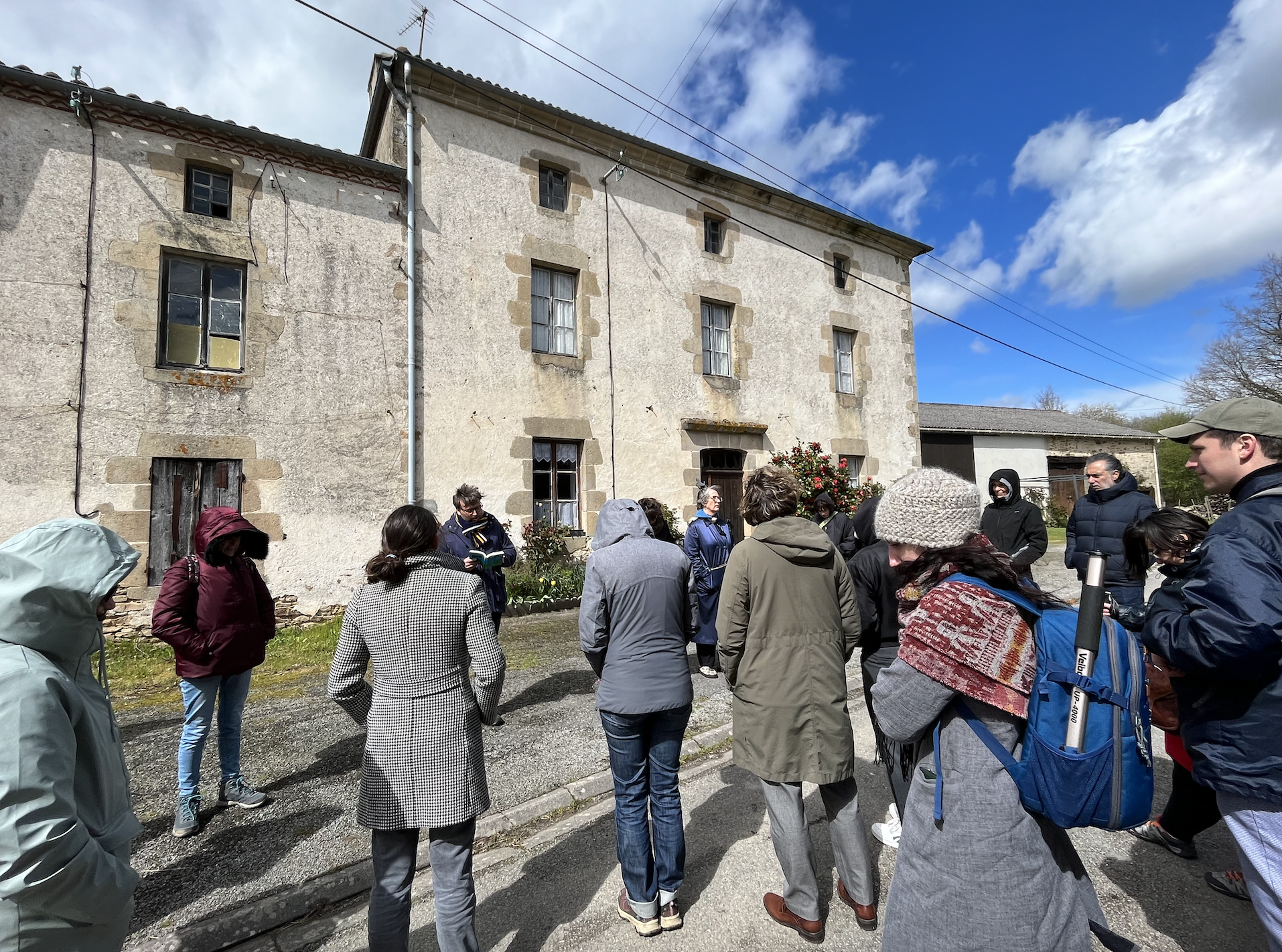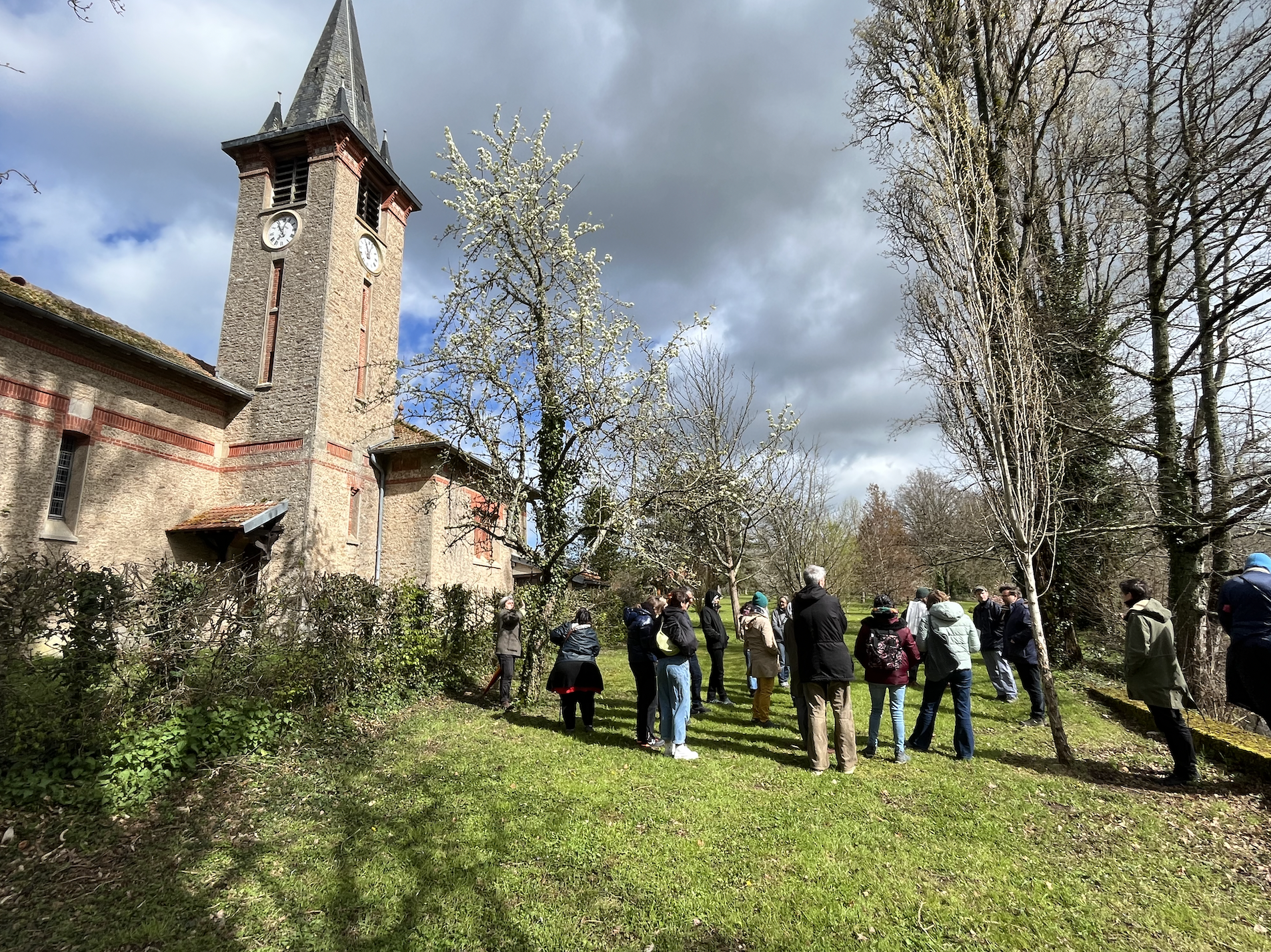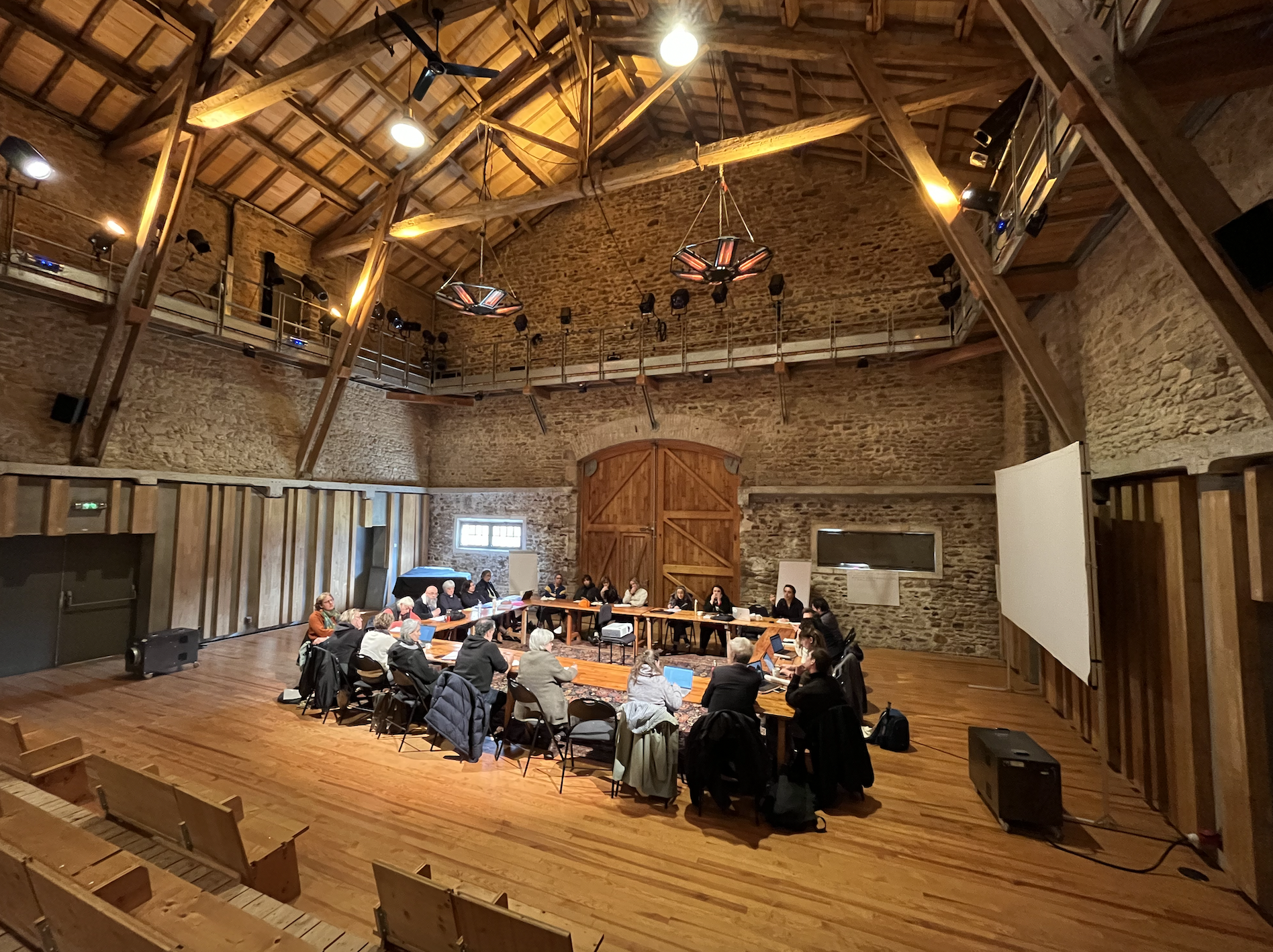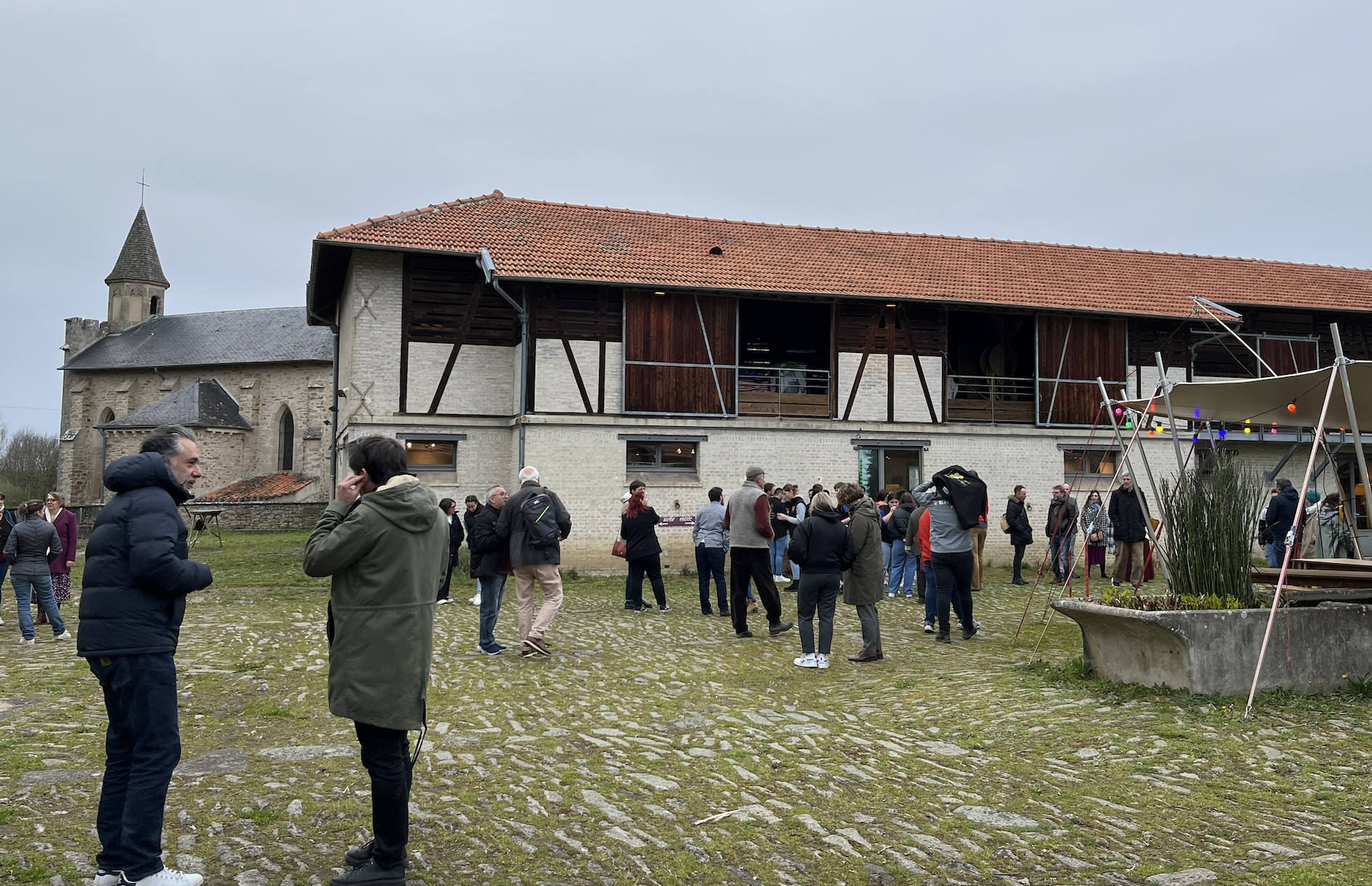The second day of feedback and field testing for the "Interpreting and applying the principles of the Faro Convention" training course was held on Thursday 28 March 2024 at the Villefavard Farm in the Limousin region. This training course was initiated by the ACCR to help its members and partners understand and apply the Faro Convention. It is run by the Oiseaux de Passage cooperative.
During the day, various discussion and practical sessions were held in order to put the Faro spirit to the test and collectively reflect on concrete applications within cultural institutions such as the Centres culturels de rencontre.
Towards a rethink /
The need for institutions to reinvent themselves, to create a new way of being within their territories, was discussed. This reflection goes hand in hand with rethinking the approach to residents and visitors, seeing them as stakeholders in the projects rather than passive spectators.
Giving them this role involves thinking about the vocabulary used, which opens up a special relationship. We need to move away from the term "audience", which implies distance and a top-down approach.
From then on, a more flexible approach is adopted, encouraging encounters and making the notion of living together a reality. Defining the conditions under which we want to meet people is already a form of distance. We need to know how to create a plastic context conducive to dialogue and cooperation.
It's not enough to be an open space; we have to position ourselves as a resource centre able to support everyone in this collaborative approach. Cooperation cannot be decreed; it is a shared responsibility that requires the creation of a specific framework.
The question of reciprocity
The question of reciprocity is essential if a relationship of trust is to be established over the long term. It's not just a question of gathering words, knowledge or know-how; the cultural institution also needs to be able to give something back to the contributors.
So we need to ask ourselves how we can continue to reach out to and work with local people once we have gathered the material from them that interests us as an organisation.
Giving space to others
Offering another version of history
The Ferme de Villefavard and the Château de Goutelas have launched marriage walks to give a voice back to the women of the region, who have been overlooked even though they have contributed so much to its history.
The Château de Goutelas wanted to reconstruct this history through joint work with the Oiseaux de passage cooperative, as part of an experiment to apply the Faro Convention in the CCRs, promoted by the ACCR. Interviews and questionnaires were carried out to gather this neglected voice. The material collected gave rise to a walk in December 2022 during which a winegrower, a farmer, an elected representative and a dj took part, with the aim of broadening their views on the emancipation of local women in general, in the fields of creation and production, agriculture, politics and power. The women's voices are part of a process of deconstructing the founding myth of the site, embodied solely by male figures. This has helped to enrich the way in which the teams view and value the site's heritage. In the longer term, they are considering the possibility of turning this material into an illustrated novel and a "point of view" tour.
On the basis of this inspiring model, the Villefavard teams have also carried out this investigative work through readings and, above all, meetings with people from the village in order to create a walk tracing the lives of emblematic women from the village and life on the farm, compared with the lives of women farmers today. With its more social approach, this walk enabled residents unfamiliar with the farm to take ownership of the site and the programme.
Encouraging interaction
During the training day, participants followed the Villefavard teams as they discovered the local heritage in the surrounding area. It was a nature walk that left plenty of room for improvisation. A tried and tested model at the farm, the idea is to build on discussions with visitors as the walk unfolds. This cross-fertilises knowledge and encourages people to dare to speak out. Tools to encourage visitor participation, such as binoculars, are also made available.
At Noirlac Abbey, for example, there are traditional guided tours where a professional guide shares his knowledge, and themed tours that encourage visitors to get involved. These two offers should not be seen as opposites, but as two proposals that respond to each other and are enriched by each other's practices. The aim is to organise meeting points between guides and other forms of knowledge, to encourage local people and visitors to take ownership of the site.
A sensitive approach
The Ferme de Villefavard also offers night-time walks during the summer season, to awaken the senses and stimulate the imagination. This appeal to the imagination is an opportunity for a more sensitive approach, during which everyone is invited to use their senses, our first relationship with the world. Encouraging this invitation means that everyone feels involved and can get involved without any question of hierarchy of knowledge.
During a nature walk, for example, hearing can be called upon, as a pretext for talking about the silent springs to come as a result of climate upheavals that are having a lasting impact on wildlife; sight offers a glimpse of a fully man-made landscape, witness to the way in which man has shaped the landscape, etc. This sensitive approach to geography complements the historical interpretation of the site, providing a veritable fresco of the area.
Renewing the link to the area through stories /
Being part of history is not enough to make a site a remarkable part of a region's cultural heritage; you have to develop a project around it. One of the pillars of the Villefavard Farm project is storytelling. These stories give substance and consistency to the history of this rural heritage, which has just as much value as a more imposing built heritage considered more noble, such as a castle or an abbey.
The CCRs are keen to give a voice to local players and to promote the diversity of the stories they tell. Citizen participation, which feeds into cultural and artistic projects, makes it possible to discuss the issue of cultural rights, in the spirit of the Faro Convention, which states that the importance of cultural heritage lies less in the objects and places than in the meanings and uses that people attach to them and the values they represent.
By working together, local people and cultural and heritage professionals can help to highlight the richness and diversity of rural areas and promote a more balanced and inclusive representation of rural life. When local people tell the story of their area, cultural players can promote these stories and give them greater visibility. Once again, the question of reciprocity is essential.
Example of a regional project: the farmers of the future/
On the evening of the 28th, a cultural action project entitled "Farmers of the future", coordinated by the Ferme de Villefavard in partnership with the Lycée d'Enseignement Général, Technologique et Professionnel Agricole (LEGTPA) de Magnac-Laval and supported by the Nouvelle-Aquitaine region, was presented.
The artists Christophe Goussard and Halory Goerger took part in a residency combining sound creation and photography in situ, giving the farmers of tomorrow, who are still in training, the chance to speak out and develop new shared narratives, particularly about farming in the Basse-Marche region. The artistic residency was an invitation to question the possible futures of our countryside, and was staged at the Villefavard farm, as the students wished, in the atmosphere of yesteryear, reminiscent of the Passées d'Août, those end-of-harvest meals that young farmers never had the chance to experience.
Teams from the ACCR network had the opportunity to attend the event and talk to both the artists and the future farmers, gaining an insight into the motivations, approaches and feelings of each, as well as the practical organisation of such a project.
To explore /
"Tour de France de la culture" study by Maison forte, a cooperative for transitions

